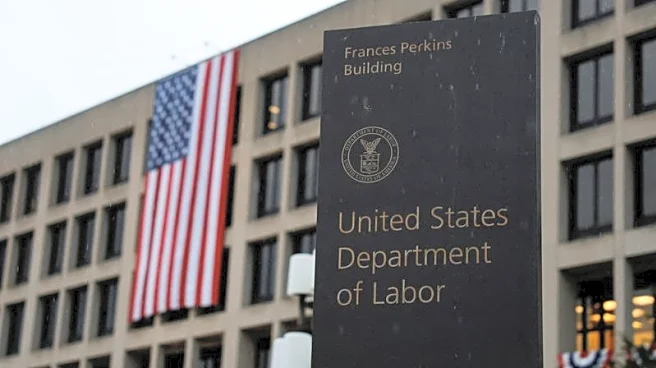What's Happening?
The U.S. Federal Aviation Administration (FAA) has issued a warning to airlines regarding a 'potentially hazardous situation' in Venezuelan airspace due to increased military activity. This warning has prompted
several international airlines, including Iberia, TAP Air Portugal, Avianca, LATAM, GOL, and Caribbean Airlines, to suspend flights to Venezuela. The FAA's notice advises air crews to exercise caution when flying over Venezuela, highlighting risks both in the air and on the ground. The situation is part of a broader U.S. military presence in the Caribbean, which has intensified amid tensions with Venezuela's government led by Nicolás Maduro.
Why It's Important?
The suspension of flights to Venezuela underscores the escalating geopolitical tensions between the U.S. and Venezuela. The U.S. military's increased presence in the Caribbean is seen as a strategic move to pressure Maduro's government, which the U.S. does not recognize as legitimate following the 2024 elections. The situation affects international travel and could have significant implications for diplomatic relations and regional stability. Airlines and passengers face disruptions, and the aviation industry must navigate the complexities of operating in areas with heightened military activity.
What's Next?
The FAA's warning requires U.S. airlines to notify the agency 72 hours in advance of any planned flights to Venezuela. The situation remains fluid, with potential for further military operations by the U.S. in the region. Airlines are closely monitoring the situation to determine when it might be safe to resume flights. The geopolitical landscape may shift depending on diplomatic engagements or military actions, with potential impacts on international relations and regional security.
Beyond the Headlines
The military buildup and flight suspensions highlight the broader implications of U.S.-Venezuela relations, including the impact on civilian safety and international diplomacy. The situation raises questions about the balance between national security and civilian air travel, as well as the role of international aviation bodies in managing such conflicts. The ongoing tensions could lead to long-term shifts in regional alliances and economic partnerships.










